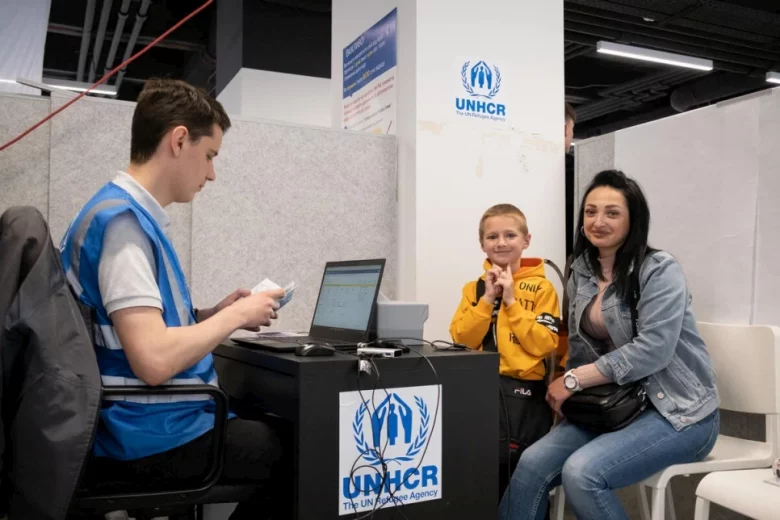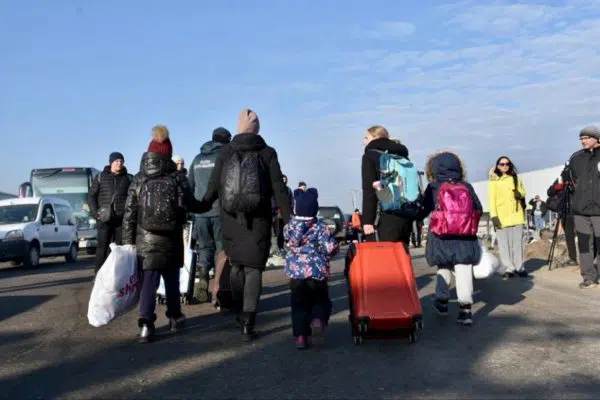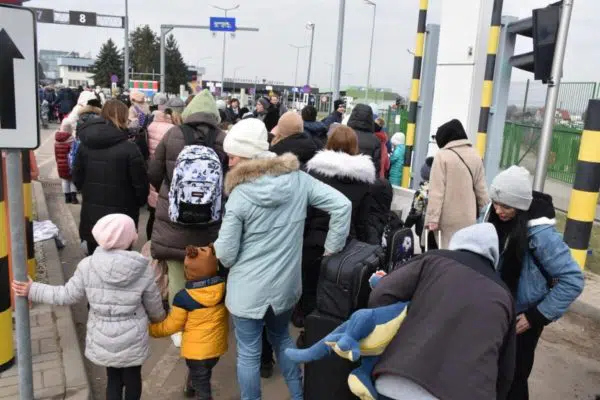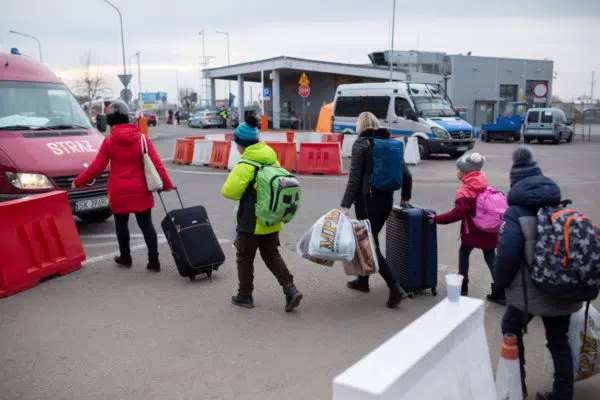
Ukrainian refugees Yulia and her son Vlad are enrolled at a UNHCR cash assistance center in Warsaw, Poland. © UNHCR/Maciej Moskwa
This is a summary of what was said by UNHCR spokesperson Olga Sarrado – to whom quoted text may be attributed – at today’s press briefing at the Palais des Nations in Geneva.
UNHCR, the UN Refugee Agency, continues to scale up its operations in Poland to provide aid to refugees from Ukraine who have settled across the country.
Poland remains the main country of arrival for refugees from Ukraine, with more than 3.5 million having entered the country since the start of the war on 24 February. The pace of arrivals has slowed down in comparison to early March, when over 100,000 people were arriving per day, to around 20,000 daily in the course of May. We have also seen more “pendular” movements, where people go back and forth across the border to Ukraine for various reasons, including visiting families, checking their properties or returning to their jobs. However, Poland expects to continue receiving and hosting a considerable number of refugees, given the large internal displacement, massive destruction and the ongoing hostilities in Ukraine.
Newly arrived refugees often come from areas heavily affected by the fighting, some having spent weeks hiding in bomb shelters and basements. They often arrive in a state of distress and anxiety, having left family members behind, without a clear plan for where to go, and with less economic resources and connections than those who fled earlier. Health services and medical needs are the main queries UNHCR staff receive from refugees. Other requests concern transportation, financial support, psychosocial needs, accommodation and access to social services, including for people with disabilities and older people.
Poland has put in place systems to ensure legal stay, access to employment, education, health care and other social welfare schemes for Ukrainian refugees. Over 1.1 million have registered with the Polish authorities, receiving a state ID number (PESEL) which gives them access to the services; 94 per cent of those registered are women and children.
UNHCR is supporting government-led efforts through a multisectoral response focusing on protection services, cash assistance, emergency supplies and reception capacity.
UNHCR rolled out its cash assistance programme in March. As of today, UNHCR has established eight cash enrollment centres in the main refugee hosting areas, including Warsaw, Krakow, Poznan, Wroclaw, Ostroda, Gdynia and Gdansk. Over 100,000 refugees from Ukraine have already received financial support from UNHCR to cover their basic needs, such as paying rent or buying food and medicine. Cash is provided for a three-month period to those most in need – serving as a transitional emergency safety net – until they can better support themselves or be included in government social protection systems.
Almost 20 per cent of refugees enrolled for cash assistance have specific needs. Aid is provided to serious medical cases, older people, single mothers without family support, women at risk and people with disabilities. Half of the children with specific needs are separated or unaccompanied.
UNHCR also has set up jointly with UNICEF twelve Blue Dot Safe Spaces, Protection and Support Hubs in Poland, where refugees can access information and counselling on rights and services and receive immediate psychosocial support. Critical protection services are also provided to people with specific needs, including referrals to specialized services and legal counselling.
UNHCR also continues to deliver humanitarian supplies into Ukraine from Poland. To date, 139 UNHCR aid trucks have been sent from our warehouse in Rzeszow, to help displaced and conflict-affected people inside Ukraine.
People and authorities of Poland have shown extraordinary generosity in welcoming refugees from Ukraine. Strong commitment and support from the international community will be crucial to sustain this solidarity.
UNHCR stands ready to continue supporting the Polish authorities in ensuring refugees meet their needs in dignity, are protected and can transition to sustainable solutions. In support of the Government-led response, UNHCR coordinated the development of an Inter-Agency Regional Refugee Response Plan which, in Poland, brings together 87 partners, calling for US$740.6 million to cover prioritized needs. So far, 25 per cent of requirements for Poland are funded.
For more information on this topic, please contact:
- In Warsaw, Olga Sarrado Olga Sarrado sarrado@unhcr.org; +48 795 527 332
- In Geneva, Shabia Mantoo, mantoo@unhcr.org; +41 (79) 337 76 50
Originally published by UNHCR on 27 May 2022.





